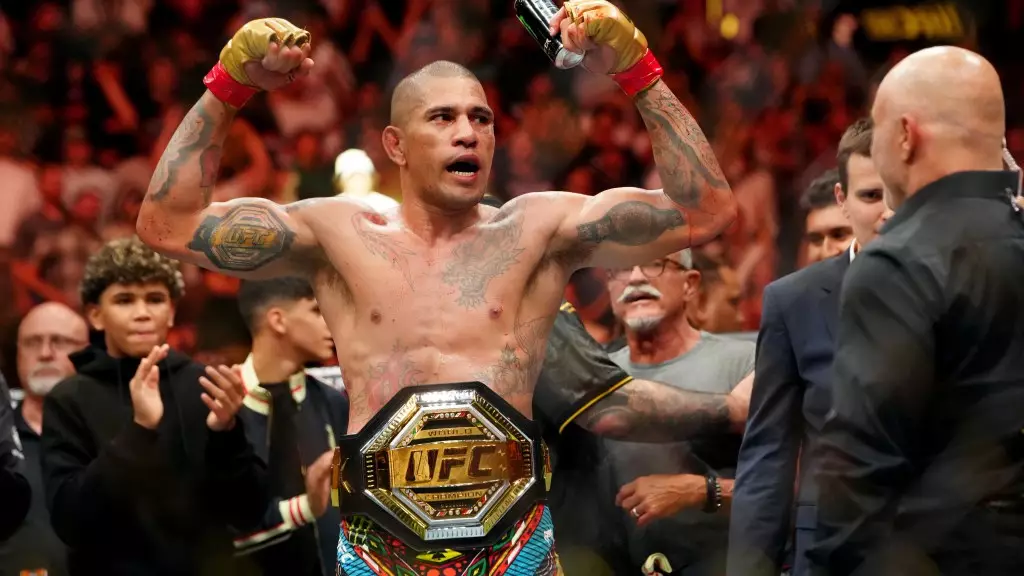Alex Pereira, the reigning UFC light heavyweight champion, has swiftly positioned himself as a formidable figure in mixed martial arts (MMA). With an extraordinary performance in 2024, which included impressive knockouts against established fighters like Jamahal Hill, Jiri Prochazka, and Khalil Rountree within a mere six-month span, Pereira has not only captured the light heavyweight title but has also laid claim to the top prize in two separate weight classes. Former UFC fighter and analyst Alan Jouban argues that this rapid ascent has secured Pereira’s legacy in ways that few fighters before him have achieved.
Jouban’s perspective is significant, especially considering the typical career trajectories in the UFC. Many fighters labor for years, amassing records and titles, while Pereira has accomplished this feat in just ten fights. His current MMA record stands at an impressive 12-2, showcasing his ability to seamlessly transition from a successful kickboxing career into the complexities of UFC competition.
The conversation surrounding Pereira’s potential induction into the UFC Hall of Fame has gained momentum, with analysts like Jouban asserting that the Brazilian fighter has already achieved enough to warrant this prestigious acknowledgment. “If he retires tomorrow, nobody in the history of the UFC has done what he has done in such a short amount of time,” Jouban contends. This assertion raises critical questions about what constitutes ‘legacy’ in the world of sports and encourages onlookers to reflect on Pereira’s unique contributions to the sport.
Pereira’s quick rise is juxtaposed against a backdrop of fighters who have had lengthy careers without reaching similar heights. This unprecedented success provokes further analysis on Pereira’s fighting style and persona, which is largely seen as magnetic. His ability to draw in audiences—with electrifying knockouts and a captivating fighting style—has arguably differentiated him from his contemporaries.
Jouban highlights Pereira’s mystique and how he resonates with fans of all ages. He points out that “the one thing that he does better than anybody else in the UFC is that he puts a bow on it and finishes fights.” This capability not only encourages fan engagement but also builds trust with spectators who expect high-energy bouts culminating in decisive outcomes. Unlike fighters who may prioritize grappling and decision wins, Pereira’s finishing instincts captivate audiences, making him a staple in main event matchups.
On the flip side, it prompts further consideration of what fans seek in a fighter. The assurance of an explosive finish has become a hallmark of Pereira’s fights, contrasting with the performances of grappling-heavy fighters like Khabib Nurmagomedov or Islam Makhachev, where the focus might shift towards strategic control rather than exhilarating conclusions.
As the discussion about Alex Pereira’s legacy continues to grow, it remains to be seen how the remainder of his career will unfold. Should he maintain his momentum and continue to dominate in the octagon, he could very well surpass the heights of notoriety achieved by other legends of the sport.
With his current trajectory, Pereira not only solidifies his place in UFC history but also sets a new standard for aspiring fighters. His journey in the sport illustrates the importance of both talent and the ability to connect with fans, providing a multifaceted blueprint for success in mixed martial arts.

